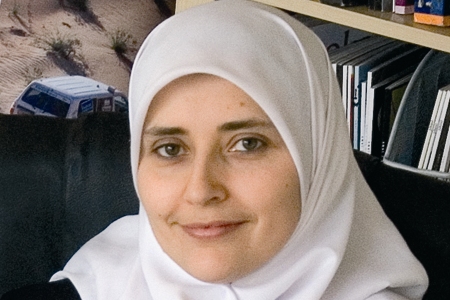
A Dignified Humanity
Issue 9 Jan / Feb 2005
I recently had to fill in a questionnaire describing in three words my identity in order of preference. Umm… so a lot flexibility there, I thought. I sat and pondered until I had my answers. I tried the same question on our nine year old son. “That’s a silly question!” he retorted. “Yes, I know, but answer it anyway.” He too pondered for a while, and said at last “Human.” I could have hugged him, despite the fact that his third identity was 'cheeky'.
“Human” had been my first choice too. That is what I am before anything else. Recognising our humanity allows us to acknowledge our shared experiences with others. We can begin to accept the strengths, frailties and desires that constitute being human, and see thesame in others. For surely as humans there are matters intrinsically common. We all wish for the same things: peace, security, justice, dignity. Maya Angelou put it simply in the poem, “Human Family” when she said, “I note the obvious differences between each sort and type, / but we are more alike, my friends, than we are unalike.”
I believe that holds true. There is more we share than we have separating us. When you sit on a busy train or bus or walk down the street you see the multitude of different people: men, women, black, brown, white, rich, poor. You can divide them into whatever categories you want, but there is no denying their common humanity, their similar hopes and fears.
Of course, this line of thinking opens one up to the criticism of idealism, as if being idealistic is something negative. It is also very much a humanist position. But I have another identity – that of being a Muslim, and that shapes my sense of what it is to be human. I believe my humanity is more than material, it has a transcendent dimension. I believe there is an element of me which will outlive my body which must die, and that living element will be subject to judgement, “This day every soul shall be rewarded for what it has earned; no injustice shall be done this day; surely God is quick in taking account.” (Qur’an 40:17)
Being a Muslim shapes my personal sense of myself as a human being, but I have experience of being human without being a Muslim and so my humanity has to precede my choice to surrender that humanity to God.
These are the complexities of living with a variety of identities, and we all live with multiple identities. I am Muslim, woman, English, wife, mother, daughter, editor, Londoner… it is a long list. And each element shapes who I am ultimately: a composite of ideals, values and experiences. Each of us has such a list and it can extend as we increase our experiences of people, events, places. Indeed, I would say that each person’s ultimate identity is as individual and specific to them as their fingerprints, for no two persons can have exactly the same mix of influences that shape their sense of self.
Yet, if we put aside our multiple, complex identities and focus on our humanity without negating all that we are, we could surely achieve a world in which we regarded one another with respect; a world where each life was valued in the same measure. Where it didn’t matter if it was an American who was killed or an Iraqi, a Jew or a Muslim, but rather all life would have the same value, and every life would be deemed a loss.
When the UN Secretary-General Kofi Annan in his acceptance speech for the Nobel Peace Prize said, “What begins with the failure to uphold the dignity of one life, all too often ends with a calamity for entire nations,” he was sending a warning to us all.
I believe Islam protects human dignity: “We have honoured the children of Adam,” the Qur’an declares emphatically. Islam promotes that sense of dignity by highlighting humans as creations of the Most High and making every individual accountable for every single action towards another.
We must struggle to uphold that dignity, for others and thereby for ourselves, before it ends with the calamity of entire nations.
Bookmark this |
|
Add to DIGG |
|
Add to del.icio.us |
|
Stumble this |
|
Share on Facebook |
|
Share this |
|
Send to a Friend |
|
Link to this |
|
Printer Friendly |
|
Print in plain text |
|


Comments
0 Comments